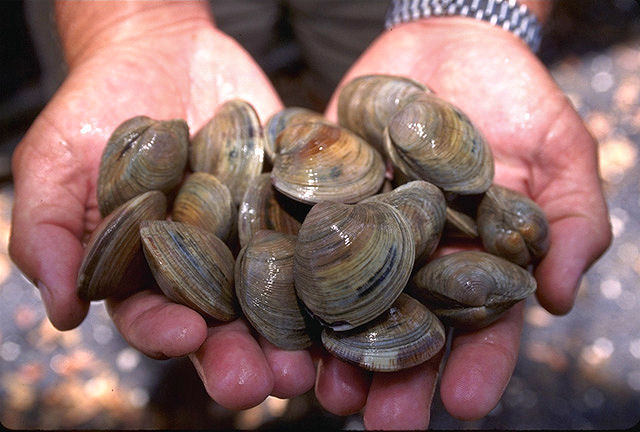
Photo courtesy the US Department of Agriculture
The BBC reports how whole “chunks of life” are lost in extinction events when related species vanish together. That’s based on a new paper in Science analyzing the extinction rates of fossil marine bivalves (clams, oysters, mussels) from the past 200 million years.
Turns out that extinctions tend to cluster along evolutionary lineages, wiping out species with a common ancestor and eliminating entire branches of the evolutionary tree. One researcher called it a casino of extinctions with the odds rigged against certain groups. The same is happening to modern species. For instance, the same drivers—climatic change and habitat loss—are now threatening whole groups of seabirds. This new understanding could enable more effective conservation efforts faster.














